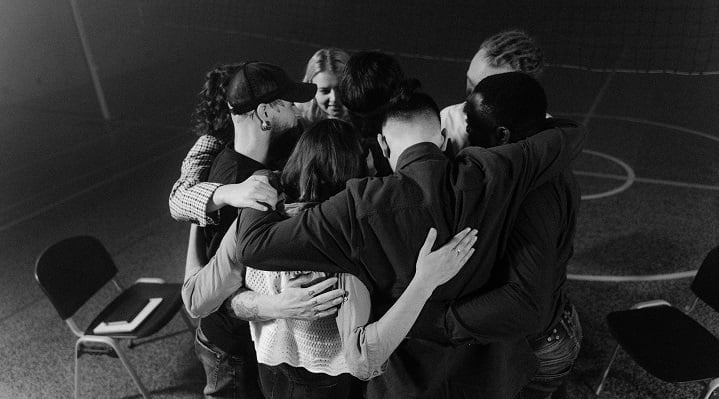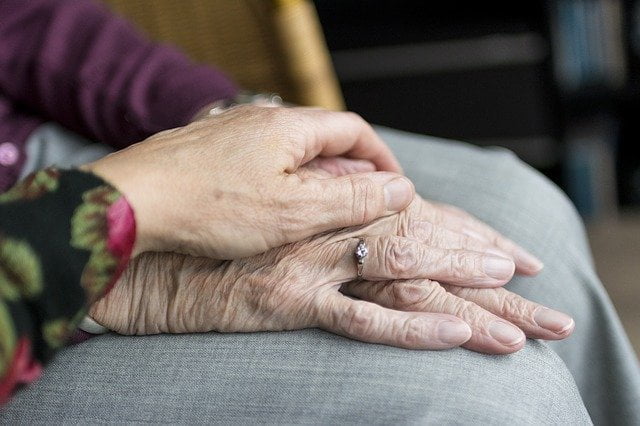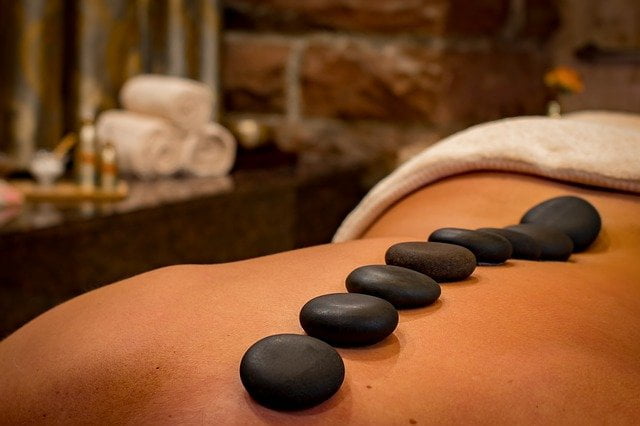Drug Rehab & Alcohol Rehab in Derby & Near Derby
Quick links for drug rehab and alcohol rehab in Derby and near Derby
- The Admissions Process at Drug and Alcohol Rehab in Derby and Near Derby
- Holding a Professional Intervention for Drug and Alcohol Rehab in Derby or Near Derby
- Private vs NHS Drug and Alcohol Rehab in Derby and Near Derby
- How To Select a Suitable Drug and Alcohol Rehab in Derby or Near Derby
- How Long Does Drug and Alcohol Rehab Last in Derby and Near Derby?
- Treating Co-Occurring Disorders at a Drug and Alcohol Rehab in Derby and Near Derby
- Styles of Therapy Used at Drug and Alcohol Rehab in Derby and Near Derby
- Relapse Prevention Planning at Drug and Alcohol Rehab in Derby and Near Derby
- The Alternatives to Drug Rehab and Alcohol Rehab in Derby and Near Derby
One of the things that help keep people trapped in addiction and that can slip them up in drug and alcohol rehab recovery is character flaws.
It is therefore important that people looking for rehab in Derby and near Derby who are trying to break away from this behaviour are able to begin working on these negative personality traits in order to break away from addiction for good.
This is one of the most important reasons why the individual can benefit from drug and alcohol rehabilitation clinics – they give them the opportunity to begin working towards sobriety.
You can get help at drug and alcohol rehab in Derby and near Derby for a number of different addictions, including alcohol addiction, binge drinking, benzodiazepine addiction, Buprenorphine addiction, cocaine dependence, ketamine addiction, opioid use disorder and even behavioural addictions and gambling addiction.
Start your recovery journey at a drug and alcohol rehab Derby today by calling our expert team on 0800 088 66 86
The Admissions Process at Drug and Alcohol Rehab Derby

Therapist making notes during an alcohol support session at a drug rehab and alcohol rehab in Derby
Addiction is not considered a ‘choice’ or ‘moral failing’ on behalf of the addiction sufferer, so the focus of drug and alcohol rehab in Derby and near Derby is always on treating the disease of addiction.
As soon as you call us, you’ll be connected to an addiction specialist in our drug and alcohol rehab admissions team.
They’ll create an appointment for your free phone consultation in which to discuss your preferences and needs for drug and alcohol rehab treatment.
The term “consultation” might sound official, even intimidating, but it’s completed in a casual manner by sympathetic and non-judgmental rehab staff.
During the 20 minute call, patients discuss their details, addiction severity, and treatment requirements for entering a drug & alcohol rehab in Derby.
To determine which drug and alcohol clinics will be suitable for recommendation, Rehab Recovery utilizes placement models such as the ASAM Criteria.
By using a list of objective guidelines, the ASAM model provides a plan for where an individual will be placed, how they should undergo rehab recovery and the structure of their aftercare programme.
These principles include but aren’t limited to; the personalisation of drug and alcohol rehab treatment and considering each patient as a whole rather than addressing symptoms alone. Through implementing this ethos, the ASAM rejects the “one-size-fits-all” approach to SUD treatment.
The Diagnostic and Statistical Manual of Mental Disorders (DSM-5) is another important model for analysing the severity of someone’s addiction. It’s used frequently by professionals in the drug and alcohol rehab admissions process to match patients to their optimal clinic.
11 symptoms form the DSM-5 framework for diagnosing varying severities of SUD. For example, if a drug and alcohol rehab patient is battling 2 or 3 symptoms, they are suffering from mild SUD, but any more than 5 is deemed moderate at least.
In the group of symptoms are signs of physical and mental ill-health such as impaired control, sustained use despite known problems, and withdrawal symptoms. The diagnostic drug and alcohol rehab criteria also include social problems, including the neglect of responsibilities and social isolation.
Begin the admissions process at an alcohol and drug rehab in Derby or near Derby by giving our team a call on 0800 088 66 86
Holding a Professional Intervention for Drug Rehab and Alcohol Rehab in Derby and near Derby

Black and white photo of an alcohol support group hugging at a drug and alcohol rehab in Derby or near Derby
For victims of SUD, it can be hard to admit the need for drug and alcohol rehab treatment or the severity of their addiction.
By staging a drug and alcohol rehab intervention, helping a loved one start their recovery journey is far easier and less emotionally demanding for all involved.
Here at Rehab Recovery, we’ll put you in touch with a professional drug and alcohol interventionist who can guide the process of drug and alcohol rehab intervention.
An intervention before rehab involves friends and family coming together productively to help the SUD victim address their problems.
In these meetings, participants will present the individual with the negative impacts of their addiction and then the opportunity to change through accepting drug and alcohol rehab treatment in Derby or near Derby.
An interventionist will examine each case of drug and alcohol addiction thoroughly and present ways to communicate with said individual effectively. One of the methods they use to this end is implementing a unique intervention model.
Perhaps the most innovative of these is the Community Reinforcement And Family Training (CRAFT) method, which will use the science of positive reinforcement to guide intervention and steer the afflicted individual gradually towards attending drug and alcohol rehab in Derby or near Derby.
Make sure that your loved one gets the help they need from a drug and alcohol rehab in Derby by giving us a call on 0800 088 66 86
Private vs NHS Drug and Alcohol Rehab in Derby and near Derby

Exterior photo of a rural drug rehab and alcohol rehab
If you’re attempting to recover from addiction or know someone who is, it’s best to take the process seriously and seek the advice of a healthcare professional at drug and alcohol rehab.
In doing so, the longevity of rehab treatment is maximised along with the chances of lifelong recovery.
Individuals can choose either a free service like the NHS or a private drug & alcohol rehab in Derby.
If a service is free of charge, it has the advantage of being budget-friendly and is often on an outpatient basis which offers flexibility. However, you are likely to be able to enter inpatient rehab much faster.
Many free and NHS-run drug and alcohol rehab services operate in Derby and near Derby, including:
1. Aquarius – Drug Rehab and Alcohol Rehab Support Derby
Address: 2 Wilson St, Derby, DE1 1PG
Telephone: 01332 362 744
Website: https://aquarius.org.uk/our-services/adult-services/derby/
2. Derby and South Derbyshire CAMHS – Derby
Address: Temple House, Mill Hill Lane, Derby, DE23 6SA
Telephone: 0300 790 0264
Website: https://www.derbyshirehealthcareft.nhs.uk/contact-us/getting-to-us/temple-house-derby
3. Turning Point – Drug and Alcohol Rehab Support Derby
Address: Suite 2.1, Southgate Business Centre, Normanton Road, Derby, DE23 6UQ
Telephone: 01332 368 300
Website: https://www.turning-point.co.uk/
On the other hand, due to the volume of patients, the waiting lists are long for NHS services in Derby and across the UK, and the treatment programmes they provide may not be as personalised as they are with private drug and alcohol rehab.
Regardless, drug and alcohol rehab treatment will still be led by guidelines by the American Society of Addiction Medicine and the National Institute for Health and Care Excellence (NICE) and for person-centred care.
Comparatively, private residentialdrug and alcohol rehabs in Derby and near Derby come with a financial cost.
Patients can expect to pay a minimum of £6,000 to complete a 28-day drug and alcohol rehab residency, which includes accommodation, medical facilities and expert supervision.
While some may opt for the financial flexibility of an NHS service, private drug and alcohol rehab care ensures that each patient is swiftly admitted rather than enduring a long waiting list.
A SUD can worsen rapidly and with little warning, it is vital to seek drug and alcohol rehab treatment as soon as you can.
Organisations like Change Grow Live can offer other free drug and alcohol support services, such as needle exchanges to reduce the transmission risk of hepatitis.
For help choosing between private and public rehab in Derby, call our team today on 0800 088 66 86
How To Select a Suitable Drug Rehab and Alcohol Rehab in Derby or near Derby

Picture of a kitchen at a residential drug and alcohol rehab clinic in Derby or near Derby
When selecting an optimal drug and alcohol rehab clinic, there are a plethora of factors to consider, making the process overwhelming for many.
As such, it’s often helpful to create a list of what’s important to you when choosing a drug & alcohol rehab in Derby or near Derby.
Each rehab centre will vary in its approach towards conquering SUD. Because of this, subjects should first think about which type of rehab will serve them best in their recovery journey.
First and foremost, subjects should select drug and alcohol rehab centres that are reputable and established. This means a drug and alcohol rehab must have around 20 years of experience in drug and alcohol addiction treatment and commendatory reviews.
While quality is paramount, drug and alcohol rehab must also be affordable for patients.
A quality team at a drug & alcohol rehab in Derby will answer questions fully and make you feel at ease.
Make sure that you end up at the right drug and alcohol rehab clinic in Derby by calling us today on 0800 088 66 86
How Long Does Drug and Alcohol Rehab Last in Derby and near Derby?

Two people walking through the woods during outdoor therapy at a drug rehab and alcohol rehab in Derby or near Derby
Each care programme at a drug & alcohol rehab in Derby is personalised to the patient, making it hard to predict the length of someone’s treatment.
Moreover, each patient could remain in drug and alcohol rehab for more or less time than expected, owing to the rollercoaster nature of recovery.
For example, patients suffering from serious addictions like opiate use disorder will spend longer undergoing treatment at drug and alcohol rehab. In these cases, a residency of around 90 days is needed to undertake comprehensive therapy and a longer medicated drug or alcohol detox.
Nevertheless, the average time spent rehabilitating at an inpatient facility in Derby or elsewhere is around 28-30 days.
This only refers to the time taken to undergo therapy at drug and alcohol rehab, and an additional 5-10 days should be added for the crucial detox phase.
This is because it allows patients to focus on achieving a full recovery through a structure of detox, psychotherapy, and relapse prevention planning at drug and alcohol rehab.
Find out how long your stay at a drug and alcohol rehab in Derby is likely to last by calling us today on 0800 088 66 86
Treating Co-Occurring Disorders at a Drug and Alcohol Rehab in Derby and near Derby

Older woman holding hands with a younger woman at a drug and alcohol rehab in Derby or near Derby
Drug and alcohol addiction often co-exists alongside another psychiatric condition in a phenomenon known as co-occurring disorders or Dual Diagnosis.
A psychiatric assessment will be made when the patient attends drug and alcohol rehab, determining if any psychiatric treatment needed will need to be implemented whilst there.
It’s an unfortunately common situation, with one UK report stating that 59% of adults entering rehab treatment for addiction do so with a co-occurring disorder.
One common example is when a patient with depression uses drugs or alcohol to self-medicate and raise their mood. As such, it’s vital to treat co-occurring disorders simultaneously while at drug and alcohol rehab, as one often informs the other.
While many people use drugs or alcohol to escape the effects of said mental illness, this will only worsen their symptoms over time. In these cases, a festering substance addiction will make pre-existing conditions worse or cause another condition to present itself, further complicating drug and alcohol rehab treatment.
Conversely, alcohol or drug overuse can be the direct cause of a mental health illness. In many instances, hazardous alcohol consumption can cause a drop in serotonin levels, leading to conditions like depression that are caused by low levels of this hormone.
Other mental health issues diagnosed at drug and alcohol rehab could include bipolar disorder, borderline personality disorder, eating disorders, obsessive compulsive disorder, post traumatic stress disorder (PTSD) and schizophrenia.
It’s important to seek the help of an addiction psychiatrist at rehab if you suspect you or a loved one are suffering from co-occurring disorders.
At a leading drug & alcohol rehab in Derby or near Derby, each individual is assessed by a specialist and offered a unique treatment plan to tackle their dual diagnosis.
You can also get free mental health support from organisations like Mind UK, Young Minds, Rethink Mental Illness, Samaritans and Papyrus.
Discover how an drug and alcohol rehab in Derby will work to support your mental health by giving us a call on 0800 088 66 86
Cocaine Treatment at Drug Rehab and Alcohol Rehab in Derby or near Derby

Black and white photo of a couple holding hands at a drug rehab and alcohol rehab in Derby or near Derby
Cocaine addiction is a serious illness capable of causing severe psychological dependencies. As a result, comprehensive inpatient treatment is often the key to long-term drug and alcohol rehab recovery.
The amount of time spent in rehab for cocaine or crack cocaine addiction should last no less than 28 days, as this allows patients to complete therapy.
At a drug & alcohol rehab in Derby, you’ll have access to a safe, comfortable environment during your short or long-term residency.
After completing the admissions process, the first phase of cocaine treatment at drug and alcohol rehab in Derby or near Derby is to complete a cocaine detox.
This lasts around 10 days and, although physical symptoms will be minimal, patients will have the option to receive medication during drug and alcohol rehab to relieve cravings, insomnia, restlessness and any other symptoms.
Thankfully, they can be treated using SSRIs or beta-blockers to rebalance dopamine levels and improve the longevity of drug and alcohol rehab treatment.
Following this, methods such as Motivational Interviewing (MI) and Cognitive Behavioural Therapy (CBT) are used to instil relapse prevention and a full drug and alcohol rehab recovery.
MI at drug and alcohol rehab increases the motivation needed to attend more intense psychotherapy like CBT, wherein negative thought patterns are addressed.
Overcome your addiction to cocaine with the help of a drug and alcohol rehab in Derby – call us today on 0800 088 66 86
Heroin Treatment at Drug Rehab and Alcohol Rehab in Derby

Alcohol patients raising their hands together at sunset outside of a drug and alcohol rehab in Derby or near Derby
Opioids such as heroin destroy countless lives globally each year, owing to the severe addictions they instil.
Therefore, if you or someone you love is struggling with heroin addiction or heroin withdrawal, it’s crucial to access inpatient addiction treatment services in the form of a drug & alcohol rehab in Derby or near Derby.
Similarly to other drug and alcohol addictions, it’s difficult to predict how long someone battling heroin will stay in rehab in Derby. However, the acuteness of these addictions means longer-term stays of between 60-100 days are posited to patients and their families.
While this might seem like an unnecessarily long time at rehab, it’s to ensure that both the physical and psychological sides of addiction have been treated.
Personalised treatment plans at drug and alcohol rehab for heroin include a medicated heroin detox, addiction counselling, and relapse avoidance measures.
Oftentimes, emotional addiction counselling methods like Dialectical Behavioural Therapy (DBT) are implemented during your drug and alcohol rehab stay. Completed on a one-on-one basis, DBT workshops explore the negative feelings and emotions underpinning drug and alcohol use, such as past trauma.
Another method famed for its success in treating heroin addiction at drug and alcohol rehab is Contingency Management (CM).
It works by using an incentive-based system to encourage sobriety and rewards patients for reaching milestones in their rehab treatment.
Oftentimes, drug and alcohol rehab centres treating heroin addiciton will use a voucher framework wherein tokens are exchanged for items or activities.
Many patients will use these rehab vouchers to request specific meals, exercise classes, art workshops, and so forth.
Overcome your addiction to heroin with the help of a drug and alcohol rehab in Derby – call us today on 0800 088 66 86
Cannabis Treatment at Drug Rehab and Alcohol Rehab in Derby

Therapist speaking with patients at a drug rehab and alcohol rehab centre in Derby or near Derby
Despite the increased social tolerance and legalisation of cannabis, chronic use can still be dangerous and may require a stay at drug and alcohol rehab.
Currently, ONS reports have shown that there are 2.6 million adults using cannabis in the UK, with studies revealing that cannabis addiction is on the rise and rehab support is needed more than ever.
Fortunately, help is readily available for those struggling in the form of drug & alcohol rehab centres in Derby or near Derby.
Usually, those seeking rehab for cannabis addiction have endured many failed attempts to cease using and continue to smoke or ingest daily.
While each patient’s experience of rehab for cannabis will differ, you will never need to undergo a cannabis detox. However, some withdrawal symptoms may still occour.
Withdrawal for heavy cannabis users often includes insomnia, irritability, restlessness, and anxiety. Fortunately, with professional supervision at a comfortable drug and alcohol rehab clinic in Derby or near Derby, symptoms should cease within 7-10 days after which therapy can begin.
Depending on the severity of their cannabis dependency, drug and alcohol rehab patients can choose to remain in an inpatient programme for an extended period of time, or transition to outpatient care.
To ensure a full recovery for acute SUD, an inpatient residency of around 20 days at a drug and alcohol rehab in Derby or near Derby is recommended.
Two examples of therapies that occur in both settings are DBT and CBT. Both are styles of behavioural intervention – used to help drug and alcohol rehab patients interrogate the reasons behind their cannabis use.
While individual therapy has a fundamental place in recovery, group support sessions are a treatment staple at rehab for cannabis.
In particular, Narcotics Anonymous (NA) provides a therapeutic community for those in rehab recovery from cannabis use disorder and provides a space for giving and receiving emotional support.
Overcome your addiction to cannabis with the help of a drug and alcohol rehab in Derby – call us today on 0800 088 66 86
Styles of Therapy Used at Drug and Alcohol Rehab in Derby

Person receiving a hot stone massage during holistic therapy at a drug and alcohol rehab in Derby or near Derby
Below we’ve listed the styles of therapy that are commonly used during the course of drug and alcohol rehab in Derby or near Derby.
Family Behavioural Therapy (FBT) at drug rehab and alcohol rehab in Derby and near Derby
A well-known style of group therapy and addiction counselling, Family Therapy has long been a feature of drug and alcohol rehab treatment for SUD. By attending regular workshops coordinated by a therapist, loved ones can unite to heal from the impacts of drug or alcohol addiction.
Friends and family members of the affected person will meet for sessions and cultivate ways of effectively communicating. Workshops are led by a licensed FBT therapist on-site at a drug & alcohol rehab in Derby.
The patient’s rehab caseworker will collaborate with each family member to ensure their emotional needs are met. As a result, dialogues can be created, feelings discussed, and objectives created to rebuild trust.
Dialectical Behavioural Therapy at drug rehab and alcohol rehab in Derby and near Derby
Oftentimes, unresolved emotional trauma is the catalyst for SUD and can lead an individual to seek escapism in the form of drugs and alcohol.
DBT teaches participants to manage the intense emotions that arise from trauma and learn to heal from past life events.
At a drug & alcohol rehab in Derby or near Derby, a trained DBT counsellor is assigned to each case to build trust and rapport over time. During sessions, mindfulness is utilised to help individuals tolerate and accept the powerful emotions associated with early recovery.
Cognitive Behavioural Therapy at drug rehab and alcohol rehab in Derby and near Derby
Over the years, CBT has become the most popular and widely used form of therapy for treating drug and alcohol addiction at drug and alcohol rehab. As behavioural patterns can lead to substance addiction, CBT aims to re-wire thought pathways and make sobriety attainable.
Subjects can undergo CBT in either inpatient rehab or outpatient settings, owing to its versatility in treating multiple addiction types.
By undergoing this therapy, patients at drug and alcohol rehab can cultivate lifelong changes in behaviour, increase self-knowledge, and retrain negative thoughts.
Motivational Interviewing (MI) at drug rehab and alcohol rehab in Derby and near Derby
Aiming to resolve ambivalence towards drug and alcohol rehab treatment, MI is a popular addition to rehab programmes in Derby, near Derby and elsewhere.
Rather than tackling cognitive distortions, an MI addiction counsellor supports rehab patients through low motivation using collaborative discussion.
Sessions take place on an individual basis alongside more intensive psychotherapy methods like DBT and CBT. Subjects are asked to form personal goals for their rehab recovery, which helps greatly with treatment retention.
Holistic Therapy (HT) at drug rehab and alcohol rehab in Derby and near Derby
Alternative and complementary therapies are crucial for building a healthy life post-drug and alcohol rehab and reigniting lost hobbies. Of these, Holistic Therapy is perhaps the most effective as it incorporates the mind, spirit, and body of each patient.
HT workshops are designed to help rehab patients rediscover the hobbies or activities they might have lost to their substance addiction.
They’re asked to create a list of goals for pursuing a healthy life outside of their chosen drug & alcohol rehab in Derby.
Based on these goals, subjects are then presented with a variety of workshops available to complete on-site at their chosen drug and alcohol rehab. While the options are various, patients are likely to encounter sessions based on yoga, meditation, mindfulness, nutrition, and music or art therapy.
Experience any and all of these therapiest at a drug and alcohol rehab in Derby by calling our team on 0800 088 66 86
Relapse Prevention Planning at Drug and Alcohol Rehab in Derby

Patient taking notes in a garden at a drug rehab and alcohol rehab centre in Derby or near Derby
Completing a treatment programme at rehab can place someone firmly on the road to lifelong sobriety.
However, there’s no fast-track route to drug and alcohol rehab recovery, and “falling off the wagon” is often a feature of recuperation.
This being said, there are ways to learn relapse prevention strategies and put them into practice. At a drug & alcohol rehab in Derby, patients are given the tools to identify their triggers and overcome them moving forward.
Behavioural therapy sessions are often used to identify these triggers, particularly CBT. Frequent CBT workshops in residential drug and alcohol rehab allow subjects to analyse and change the cognitive patterns behind their drug and alcohol addiction.
After being discharged from drug or alcohol rehab in Derby and near Derby, patients are provided with 12-step facilitation therapy as part of their aftercare package.
This connects them to local NA or AA groups- both of which offer relapse prevention planning in the form of group support therapy at rehab.
There are many additional methods for preventing relapse that involve self-care models. The HALT relapse prevention formula helps subjects recognize if they’re in a vulnerable state, and suggest steps to improve their mental and physical well-being following drug and alcohol rehab.
Illustrating the 4 red flags of relapse, the HALT acronym consists of hunger, anger, loneliness, and tiredness. If someone recognises these symptoms of ill-health, they can act to improve their wellbeing and decrease the chances of relapse when you leave drug and alcohol rehab.
For maintaining long-term sobriety, the Cenaps Relapse Prevention Model is another effective tool that subjects can use both during and post-drug and alcohol rehab. While akin to HALT in this way, Cenaps instead offers 9 detailed steps for trigger management.
The 9 articles merge holistic and medical advice to cater for each type of relapse trigger. Among these are the development of coping skills, self-regulation, awareness, and understanding.
Make sure that your stay at an alcohol and drug rehab in Derby is matched with an equally effective relapse prevention plan by calling us today on 0800 088 66 86
The Alternatives to Drug and Alcohol Rehab in Derby

Woman meditating next to a lake at a drug and alcohol rehab clinic in Derby or near Derby
Professionally supported drug and alcohol rehab is one of the best ways to recover from addiction, but it isn’t for everyone.
Thankfully, many alternative services to private drug and alcohol rehab in Derby exist.
Home Detox Instead of Drug Rehab & Alcohol Rehab in Derby or near Derby
Home detoxification is an inviting option for those battling SUD. For those with less severe addictions and other responsibilities to think about, it offers a degree of personal and financial flexibility.
Throughout a home drug or alcohol detox, a medical professional from a drug and alcohol rehab will visit the patient at home to ensure that the alcohol or drug detox is running smoothly and that any withdrawal symptoms are alleviated. Additionally, any prescription drugs will be sent out via the post.
While this may be a hassle-free option for mild drug or alcohol addictions, it can be unsafe for those with a more severe addiction and for whom inpatient drug and alcohol rehab would be more suitable.
These individuals should reject the idea of home detox, and opt for a medically supported rehab treatment programme.
This is particularly appropriate if they have failed to stay sober in the past or if they are consuming large amounts of an addictive substance – for example, 30+ units of alcohol a day.
Additionally, those battling a mental health illness alongside addiction should seek the support of a drug and alcohol rehab centre in which to detox.
Drug and Alcohol Fellowship Groups in Derby

Alcohol support group taking notes together at a drug rehab and alcohol rehab in Derby or near Derby
Building a support network that consists of peers in recovery is crucial to maintaining sobriety and preventing relapse after you leave drug and alcohol rehab in Derby.
Fellowship groups are present in communities across the UK, with each network specialising in a specific substance use disorder.
Therapeutic communities such as AA and NA often consist of individuals who have already undergone some form of rehab treatment for SUD.
Nevertheless, these groups have their doors open to anyone in the community who might need them, regardless of drug and alcohol rehab treatment status.
Narcotics Anonymous (NA) is one of the most widely recognised fellowship groups. And helps millions worldwide recover from illicit drug use disorders. Wherever they are based, NA meetings aim to build a strong support network over time while staying apolitical and nonprofit. Cocaine Anonymous is another well-known subsidiary.
Alcoholics Anonymous (AA) operates similarly to NA but is geared towards helping victims of alcohol addiction to find their support network. Sessions often implement a 12 step programme: a set of values for maintaining lifelong sobriety that members can work through together.
Al-Anon and Alateen are also popular support networks that work with the 12 step programme that believes in a higher power aiding you to remain sober.
SMART is a self-help organization that offers participants a range of support for a variety of drug and alcohol addictions. SMART therapists and volunteers organize both online and in-person meetings to help participants start their recovery journeys.
All of these support groups operate meetings in or near to Derby, and SMART Recovery hosts frequent meetings online.
Outpatient Drug Rehab and Alcohol Rehab Treatment in Derby and near Derby
For someone who is highly functional and must return home following drug or alcohol rehab treatment, outpatient care for SUD is a viable option.
Said individual may have already completed inpatient treatment or has chosen outpatient therapy as their only form of rehab recovery.
Of the two drug and alcohol rehab treatment options for SUD, outpatient programmes are popular as it allows people to recover at home while saving money. However, if a drug or alcohol addiction is exacerbated by environmental or social factors, returning home is rarely conducive to recovery.
Several sites across Derby offer outpatient drug addiction treatment, including both private rehabs and NHS clinics.
Whatever support you need -whether from a conventional drug and alcohol rehab clinic in Derby or one of these excellent alternatives- let our experts help by calling us on 0800 088 66 86
Contacting Rehab Recovery for Access to Drug and Alcohol Rehab in Derby

Man typing on a phone at a drug rehab and alcohol rehab clinic in Derby or near Derby
For more information on drug and alcohol rehab options in Derby, contact Rehab Recovery today on 0800 088 66 86.
When you contact us, we shall outline a variety of treatment options that are available to you in Derby. Sober living homes may also be offered following rehab in order to help you maintain sobriety.
This includes both private and statutory alcohol or drug addiction treatments.
Every drug and alcohol rehab in England and Wales that we work with is vetted by the Care Quality Commission.
Get help for addiction across Derbyshire, including in Chesterfield, Ilkeston, Long Eaton, Glossop, Swadlincote, Alfreton, Buxton, Belper, Dronfield, Ripley, Staveley, Heanor and Loscoe, Shirebrook, New Mills, Old Bolsover, Matlock, Sandicare, Ashbourne, Whaley Bridge, Darley Dale and many more.


